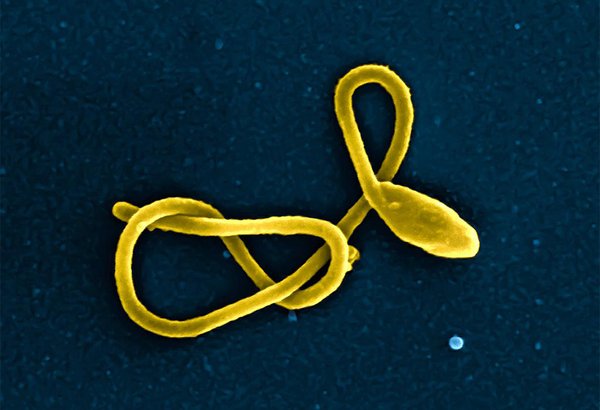A new study found that a large portion people interviewed in the eastern Democratic Republic of the Congo last year during the ongoing Ebola outbreak there didn't believe the deadly virus was real.
The study published in The Lancet Infectious Diseases journal found a "deep mistrust" of response workers led to the people being 15 times less likely to get medical treatment at a health center, the Associated Press reports.
Ebola virus disease (EVD) is a type of viral hemorrhagic fever brought on by any of several strains of viruses in the Ebola virus genus. Ebola viruses are capable of causing severe, life-threatening disease.
According to U.S. Department of Labor Occupational Safety and Health Administration:
EVD is usually marked by fever, muscle pain, headache, and sore throat. The illness progression includes nausea, vomiting, diarrhea, and impaired organ function. In some cases, rash, internal and/or external bleeding, and death may occur.
RELATED READ: Mumps outbreak likely just beginning, Temple official says
In the September survey, researchers interviewed 961 adults in the North Kivu province, an area at the epicenter of the 10th active outbreak of Ebola, according to ABC News, which reported:
More than 25 percent of respondents said they believed rumors Ebola doesn't exist. Additionally, some 33 percent said they believed the outbreak was fabricated by authorities for financial gains, while 36 percent said they believed it was fabricated to destabilize the region. Nearly a fifth believed all three statements.
According to The World Health Organization, that at least 639 people have died from Ebola since August.
The AP reported:
Response to the outbreak has been hampered by a series of deadly attacks on Ebola health centers since the study was completed. As a result, Doctors Without Borders has stopped staffing two health centers at the outbreak's epicenter.
Researchers said their study showed more precisely how individuals’ misinformed views about Ebola were undermining the response and helping to spread the deadly virus.


